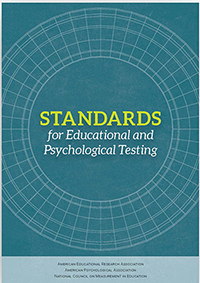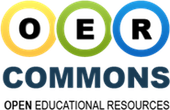The following outline is provided as an overview of and topical guide to education:

Psychometrics is a field of study within psychology concerned with the theory and technique of measurement. Psychometrics generally refers to specialized fields within psychology and education devoted to testing, measurement, assessment, and related activities. Psychometrics is concerned with the objective measurement of latent constructs that cannot be directly observed. Examples of latent constructs include intelligence, introversion, mental disorders, and educational achievement. The levels of individuals on nonobservable latent variables are inferred through mathematical modeling based on what is observed from individuals' responses to items on tests and scales.

A standardized test is a test that is administered and scored in a consistent, or "standard", manner. Standardized tests are designed in such a way that the questions and interpretations are consistent and are administered and scored in a predetermined, standard manner.
Educational assessment or educational evaluation is the systematic process of documenting and using empirical data on the knowledge, skill, attitudes, aptitude and beliefs to refine programs and improve student learning. Assessment data can be obtained from directly examining student work to assess the achievement of learning outcomes or can be based on data from which one can make inferences about learning. Assessment is often used interchangeably with test, but not limited to tests. Assessment can focus on the individual learner, the learning community, a course, an academic program, the institution, or the educational system as a whole. The word 'assessment' came into use in an educational context after the Second World War.

The No Child Left Behind Act of 2001 (NCLB) was a U.S. Act of Congress that reauthorized the Elementary and Secondary Education Act; it included Title I provisions applying to disadvantaged students. It supported standards-based education reform based on the premise that setting high standards and establishing measurable goals could improve individual outcomes in education. The Act required states to develop assessments in basic skills. To receive federal school funding, states had to give these assessments to all students at select grade levels.

Open educational resources (OER) are teaching, learning, and research materials intentionally created and licensed to be free for the end user to own, share, and in most cases, modify. The term "OER" describes publicly accessible materials and resources for any user to use, re-mix, improve, and redistribute under some licenses. These are designed to reduce accessibility barriers by implementing best practices in teaching and to be adapted for local unique contexts.
The Education Quality and Accountability Office (EQAO) is a Crown agency of the Government of Ontario in Canada. It was legislated into creation in 1996 in response to recommendations made by the Royal Commission on Learning in February 1995.
The Iowa Tests of Educational Development (ITED) are a set of standardized tests given annually to high school students in many schools in the United States, covering Grades 9 to 12. The tests were created by the University of Iowa's College of Education in 1942, as part of a program to develop a series of nationally accepted standardized achievement tests. The primary goal of the ITED is to provide information to assist educators in improving teaching.
The Joint Committee on Standards for Educational Evaluation is an American/Canadian based Standards Developer Organization (SDO). The Joint Committee, created in 1975, represents a coalition of major professional associations formed in 1975 to develop evaluation standards and improve the quality of standardized evaluation. The Committee has thus far published three sets of standards for evaluations. The Personnel Evaluation Standards was published in 1988 and updated in 2008, The Program Evaluation Standards was published in 1994, and The Student Evaluation Standards was published in 2003.

The Standards for Educational and Psychological Testing is a set of testing standards developed jointly by the American Educational Research Association (AERA), American Psychological Association (APA), and the National Council on Measurement in Education (NCME).
Formative assessment, formative evaluation, formative feedback, or assessment for learning, including diagnostic testing, is a range of formal and informal assessment procedures conducted by teachers during the learning process in order to modify teaching and learning activities to improve student attainment. The goal of a formative assessment is to monitor student learning to provide ongoing feedback that can help students identify their strengths and weaknesses and target areas that need work. It also helps faculty recognize where students are struggling and address problems immediately. It typically involves qualitative feedback for both student and teacher that focuses on the details of content and performance. It is commonly contrasted with summative assessment, which seeks to monitor educational outcomes, often for purposes of external accountability.
Linda Darling-Hammond is an American academic who is the Charles E. Ducommun Professor of Education Emeritus at the Stanford Graduate School of Education. She was also the President and CEO of the Learning Policy Institute. She is author or editor of more than 25 books and more than 500 articles on education policy and practice. Her work focuses on school restructuring, teacher education, and educational equity. She was education advisor to Barack Obama's 2008 presidential campaign and was reportedly among candidates for United States Secretary of Education in the Obama administration.
American College Personnel Association - College Student Educators International is a major student affairs association headquartered in Washington, D.C. at the National Center for Higher Education.
In the United States education system, School Psychological Examiners assess the needs of students in schools for special education services or other interventions. The post requires a relevant postgraduate qualification and specialist training. This role is distinct within school psychology from that of the psychiatrist, clinical psychologist and psychometrist.

Evidence-based education (EBE) is the principle that education practices should be based on the best available scientific evidence, rather than tradition, personal judgement, or other influences. Evidence-based education is related to evidence-based teaching, evidence-based learning, and school effectiveness research. For example, research has shown that spaced repetition "leads to more robust memory formation than massed training does, which involves short or no intervals".
Teacher quality assessment commonly includes reviews of qualifications, tests of teacher knowledge, observations of practice, and measurements of student learning gains. Assessments of teacher quality are currently used for policymaking, employment and tenure decisions, teacher evaluations, merit pay awards, and as data to inform the professional growth of teachers.

OER Commons is a freely accessible online library that allows teachers and others to search and discover open educational resources (OER) and other freely available instructional materials.
Educator effectiveness is a United States K-12 school system education policy initiative that measures the quality of an educator performance in terms of improving student learning. It describes a variety of methods, such as observations, student assessments, student work samples and examples of teacher work, that education leaders use to determine the effectiveness of a K-12 educator.
Data-driven instruction is an educational approach that relies on information to inform teaching and learning. The idea refers to a method teachers use to improve instruction by looking at the information they have about their students. It takes place within the classroom, compared to data-driven decision making. Data-driven instruction works on two levels. One, it provides teachers the ability to be more responsive to students’ needs, and two, it allows students to be in charge of their own learning. Data-driven instruction can be understood through examination of its history, how it is used in the classroom, its attributes, and examples from teachers using this process.






